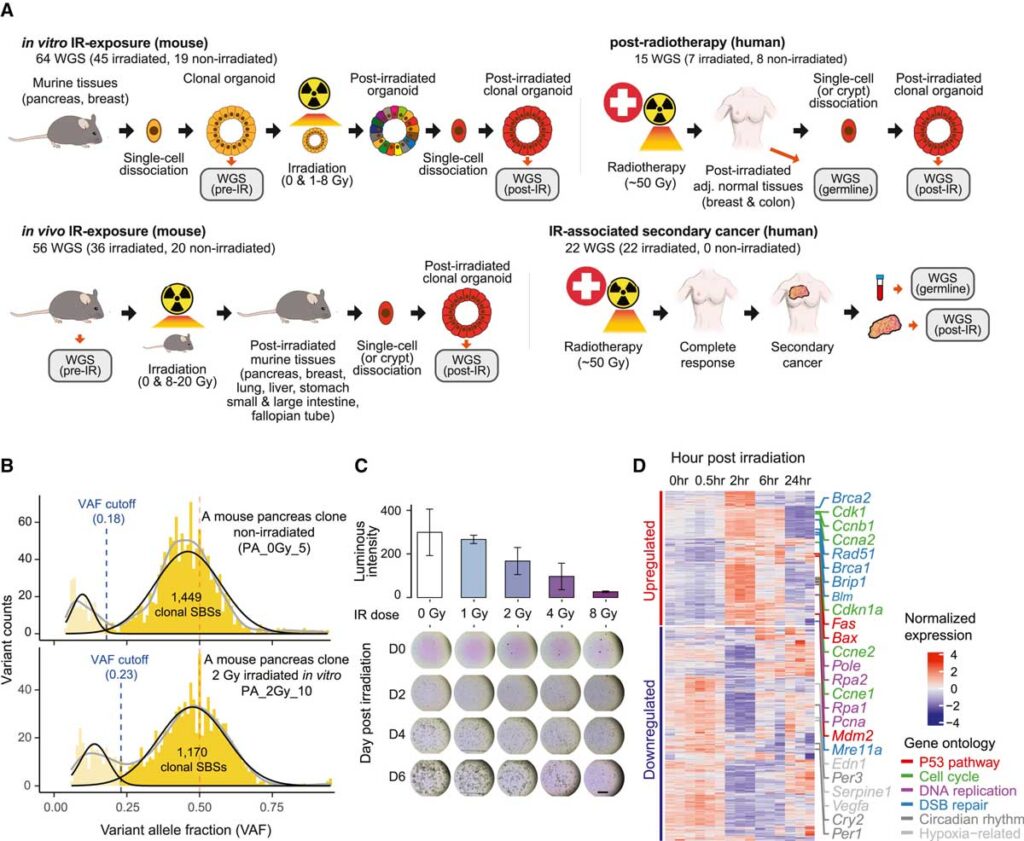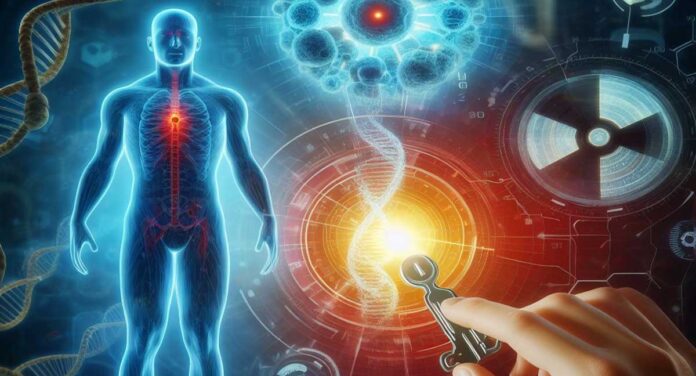In a world where the echoes of nuclear events still resonate, the recent release of wastewater from Japan’s Fukushima disaster has reignited concerns over radiation exposure.
While ionizing radiation—a known carcinogen—has been a subject of scientific study for decades, its precise impact on human cells has remained somewhat of a mystery.
A recent breakthrough study by Professor Young Seok Ju and his team at KAIST brings new insights into how radiation affects our DNA, promising to revolutionize our understanding and treatment of radiation-related health issues.
The Nature of Radiation and Its Everyday Impact
Understanding Ionizing Radiation
Ionizing radiation, a formidable force with the power to alter cellular DNA, has been a known health adversary, linked to cancer and genetic disorders.
Yet, it is a part of our daily lives, from natural background radiation to medical diagnostics, underscoring the importance of comprehending its effects at a molecular level.
Everyday Encounters with Radiation
Contrary to the fear often associated with radiation, our daily exposure is typically low.
From the earth beneath our feet to the medical procedures we undergo, radiation is an omnipresent yet misunderstood part of our environment.
Unveiling the Mystery: KAIST’s Landmark Study
The Research Team’s Journey
Led by Professor Young Seok Ju, the KAIST research team embarked on an ambitious project to demystify the impact of ionizing radiation on human and mouse cells.
The study’s intricate analysis has shed light on how our DNA responds to radiation, opening new avenues for medical research and therapy.
A Closer Look at Radiation-Induced Mutations
The team discovered that exposure to 1 Gray (Gy) of radiation introduces an average of 14 mutations per cell, with a unique mutation pattern distinct from other carcinogens.
This pattern includes short base deletions and complex genomic rearrangements, highlighting the specific dangers radiation poses to our genetic material.

The Implications of Low-Dose Radiation Exposure
Surprising Findings from Long-Term Exposure
One of the study’s most unexpected findings was that low-dose radiation over extended periods produces similar mutation quantities to acute high-dose exposure.
This revelation has significant implications for our understanding of radiation safety and the development of protective measures.
Looking Ahead: The Future of Radiation Research and Therapy
Advancing Safe Radiation Therapy
With these new insights, researchers like Dr. Son from the Dongnam Institute are optimistic about the future of radiation therapy.
The study paves the way for safer, more effective treatments, benefiting countless patients worldwide.
A New Tool for Understanding DNA Impact
Professors Kim and Chang from Seoul National University see this study as a breakthrough tool for future research.
By accurately mapping radiation’s effects on DNA, scientists can now explore new preventative and therapeutic strategies.
Conclusion
The KAIST study marks a significant milestone in our understanding of radiation’s impact on human health.
By illuminating the intricate ways radiation alters DNA, it offers hope for improved safety measures and treatments.
As we continue to navigate the complexities of a world shaped by nuclear energy and medicine, this research lights the path forward, promising a safer future for all.
FAQs
Radiation causes mutations by breaking the DNA strands or altering its base pairs, leading to errors during DNA replication.
Not all mutations lead to cancer, but certain types of mutations can disrupt normal cell function and increase the risk of cancer development.
Yes, medical procedures are designed to minimize risk and use the lowest radiation dose possible for effectiveness, balancing the benefits against potential risks.
More info: Jeonghwan Youk et al, Quantitative and qualitative mutational impact of ionizing radiation on normal cells, Cell Genomics (2024). DOI: 10.1016/j.xgen.2024.100499. www.cell.com/cell-genomics/ful … 2666-979X(24)00026-0

